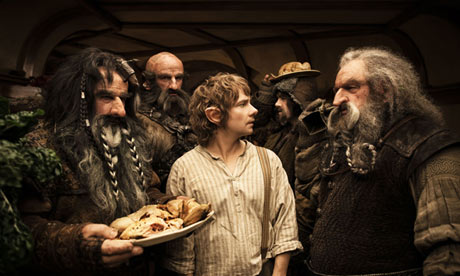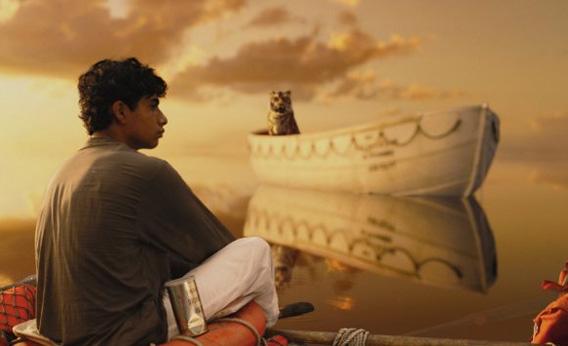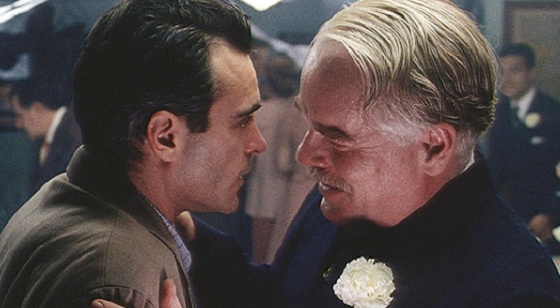The Hobbit (2012):
Written by Fran Walsh, Peter Jackson, Philippa Boyens, and Guillermo Del
Toro. Directed by Peter Jackson.
Starring: Martin Freeman, Ian
Mckellan, Richard Armitage, James Nesbitt. Andy Serkis, Ian Holm, and Cate Blanchett. Rated
PG-13 for: Heavy fantasy action, Gollum. Running
Time: 169 Minutes. Based on The Hobbit (and other assorted
writings) by J.R.R. Tolkein.
Rating: 3/4 Stars
It’s
finally here. 9 years after Peter
Jackson concluded one of the most powerful and dominating film trilogies of all
time, we’re back in Middle Earth for a new trilogy, this one centered
around (but not solely based on) the master storyteller’s LOTR prequel, The
Hobbit. And I honestly could not be any
happier. The entire LOTR universe is one
of unique imagination, creativity, and depth, whose stories will certainly end
up being among the most enduring of the past century. The fact that Peter Jackson managed to pull
off filming such works on his first go around is little short of miraculous, so
of course, the expectations for the first of his new Middle Earth trilogy were
on par with those surrounding "The Avengers" and "Dark Knight Rises". And, in my opinion, "The Hobbit" matches and
exceeds expectations with aplomb. "The
Hobbit: An Unexpected Journey" is a wonderful, incredibly fun film, and offers
nothing but good vibes for the next two Hobbit movies.
Taking place
60 years before the events of the Fellowship & Co., "An Unexpected Journey"
(at least at first) begins the tale of how Bilbo Baggins, once as doddering,
stodgy, and inflexible as any other hobbit, is coaxed by Gandalf into joining a
party of dwarves on a quest to vanquish the dragon Smaug, during the course of
which (completely unnecessary spoiler alert) he acquires the fabled One Ring,
which will of course later set in motion the events of the LOTR trilogy. The dwarves, we learn via several flashbacks,
were driven from their kingdom by the evil dragon Smaug, who coveted their
extensive hoards of gold, leaving them abandoned and homeless. Now their prince, Thorin, and his motley crew
(extra emphasis on motley) of ragtag dwarves (extra emphasis on ragtag), along
with Gandalf, have hatched a plan to sneak back into the mountain and retake
their kingdom-under-the-mountain, all the while being pursued by orcs led by an
old foe of Thorin’s family.
While
the dwarf-quest aspects of the film stay pretty close to the book from what I
can remember (a nighttime encounter with three Stooge-esque trolls, a visit to
Elrond at Rivendell, their escapades under the mountain), Jackson fairly
quickly breaks away from The Hobbit’s traditional storyline to delve into
aspects of Middle Earth’s history only hinted at in The Hobbit and LOTR,
specifically the growing power of a being called the “Necromancer” (who may or
may not be Sauron, circa his pre-flaming-reptile-eye days), and the threat both
he and Smaug pose to Middle Earth. To
flesh out this addendum to the plot, we get a variety of additional cameos and
bit roles (including an expanded role for Radagast the Brown, the only other
wizard to appear in the LOTR books) to set the stage for what could potentially
be the focus of the third Hobbit film, currently titled "There And Back
Again".
As
excited as I am about the idea of bringing the Necromancer to film, and
possibly introducing other characters not seen in Jackson’s previous LOTR
films, the constant asides could end up pulling focus and importance away from
the journey of the dwarves to the Lonely Mountain. The Hobbit is a fairly tight, contained
story, with a far lighter and more whimsical tone than the serious, deep,
symbolism-laden Meisterwerk that is LOTR.
And while Jackson does an excellent job of bringing the more silly,
childish aspects of The Hobbit to the screen, it can sometimes seem dwarved
(pun intended) compared to the bigger threats and ideas hinted at by Gandalf,
Elrond, and Radagast.
Jackson
also attempts to make the story feel bigger by expanding the few action bits of
the book into huge, fighting-laden set pieces.
While certainly fun to watch, an unfortunate side-effect of both the
parallel storylines and the expanded action is that Bilbo is often quite
literally forgotten, disappearing completely from the film for big chunks of
time, whereas the book is written exclusively from his point of view.
On the
whole, though, I am not yet bothered by this, since much of the time away from
Bilbo is well-spent introducing the audience to the additional stories being
brought into play, and help to set the stage nicely for the next two
films. I do, however, feel that it
detracts from this first film only because the parts focusing on Bilbo are, in
my opinion, the movie’s best. The
opening scene establishing the characters of the dwarves (as they completely
pillage Bilbo’s house of all food) is as raucous and comical as anything else
in the movie, and Bilbo’s attempts to maneuver around the three aforementioned
trolls are both gripping and hilarious.
The scene that makes the movie for me is the confrontation between Bilbo
inside the Misty Mountains, where Bilbo finds the One Ring, and has to play a
game of riddles with Gollum in order to survive and find the way out. Andy Serkis’ Gollum is as spellbindingly
disgusting and pathetic as ever, with few visual changes from his design in the
original trilogy. Seriously, when is
that man going to get his Lifetime Achievement Award from the MPAA?
Like I
said though, Bilbo’s vanishing acts aren’t that big a deal, since the time away
from our little hobbit are put to good use.
What I did find problematic was the amount of time devoted to the Pale
Orc, a huge albino determined to hunt down and kill Thorin. While certainly a good plot point (and
probably an eventual leader in the Battle of Five Armies, awaiting us down the road),
he falls flat as far as being a villain is concerned, simply because he’s….well….boring. He’s big, he’s pale, he wants to kill
dwarves. And that’s about it,
really. And he constantly reiterates his
desire to kill anything short and bearded in monotone exposition, gazing into
the nether through wide, dead eyes, and pulling a Christian Bale by never fully
closing his mouth. There were several
times I almost thought he’d fallen asleep, or was having a quiet seizure
between monologues. Honestly, I found the
Urukai leaders of "Fellowship" and "Two Towers" more engaging that Whitey the
Warg-Whipper, and they barely opened their mouths.
It’s a
minor complaint though, as the rest of the film is incredibly good, both
story-wise and effects-wise. I can say
without hesitation that I am a fan of the new 48-FPS cameras used for the movie. Jackson is one of the few directors who can
actually put 3D to good use and make it enhance the film, rather just throw it
in as a superfluous money grab (although I’m sure he wants money too- but as
long he delivers a great story, I am willing to pay). From the first scene onward, the sheer beauty
of the film had me gaping, although thankfully there is genuine depth to back
up the pretty visuals this time around.
All in
all,"An Unexpected Journey" is really, really good, and well-worth seeing. Despite its flaws, it is easily one of my favorite
films of the year, and bodes well for the next two movies. If it’s available in your theater, spend the
extra money to see the HFR in 3D. Few
other films that I’ve seen put the technology to such good use. Another Middle Earth adventure has begun
everyone! Be very excited.
-Judge Richard








